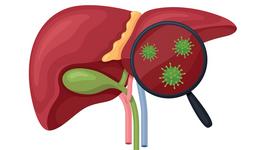CMN Weekly (10 May 2024) - Your Weekly CRISPR Medicine News
CMN Intelligence - The World’s Most Comprehensive Intelligence Platform for CRISPR-Genomic Medicine and Gene-Editing Clinical Development
Providing market intelligence, data infrastructure, analytics, and reporting services for the global gene-editing sector. Read more...
Top pick
- Data from Editas Medicine's Phase 1/2 BRILLIANCE trial of EDIT-101 for the rare form of blindess Leber Congenital Amaurosis Type 10 (LCA10) was published this week in the New England Journal of Medicine. Of 14 trial participants (2 children and 12 adults) injected with EDIT-101, 11 participants showed improvement in at least one of four measured outcomes, and no serious adverse events or dose-limiting toxic effects were recorded. EDIT-101 is a CRISR-Cas9-based gene-editing candidate designed to remove a certain LCA10-associated mutation (known as IVS26) in the CEP290 gene, which accounts for almost one third of all LCA cases. Read more about EDIT-101 in a previous clinical trial update here.
Save the date for CRISPRMED25!
When: April 7-11th, 2025
Where: Øksnehallen, Copenhagen, Denmark.
Organiser: CRISPR Medicine News, CMN.
Meet the global CRISPR Medicine community in Copenhagen, Denmark April 7-11th, 2025.
Focus: Tools, Delivery, Safety/Off-target, Diseases, Pre-clinical/clinical, Standards and Regulations | Functional Genomics, Target Identification, Target Validation.
Segments: University, Hospital, Biotech, Pharma, CRO.
+500 delegates, +60 speakers, 2x poster sessions, relevant workshops, social and networking events, satellite meetings (future medicine, start-ups/investor, B2B)
Check out CRISPRMED24 for inspiration and CMN LinkedIn for stories from CRISPRMED24.
Research and detection
- A team based at Ulm University Medical Center and LMU Munich report in Nature Communications the identification of innate anti-viral factors, including targets of the accessory protein Nef, through a a replication-competent HIV-guided CRISPR screen. The team engineered libraries of >1,500 replication-competent HIV-1 constructs, each expressing a single gRNA to target >500 cellular genes for virus-driven discovery of anti-viral factors. They found that passaging in CD4+ T cells robustly enriched HIV-1 encoding sgRNAs against GRN, CIITA, EHMT2, CEACAM3, CC2D1B and RHOA by >50-fold. Using an HIV-1 library lacking the accessory nef gene, they identified IFI16 as a Nef target. According to the authors, functional analyses in cell lines and primary CD4 T cells support that the HIV-driven CRISPR screen identified restriction factors targeting virus entry, transcription, release and infectivity. They propose that their HIV-guided CRISPR technique enables the sensitive discovery of physiologically relevant cellular defense factors throughout the entire viral replication cycle.
- Scientists in China report that FTH1 protein overexpression using a catalytically-inactivated CasRx (dCasRx) translation enhancement system protects the kidney from calcium oxalate crystal-induced injury. Specifically, the team used dCasRx to create a translation-enhancement system for mammals called dCasRx-eIF4GI, which combined eukaryotic translation initiation factor 4G (eIF4GI) to boost translation levels of the target gene FTH1 by recruiting ribosomes, without affecting mRNA levels. Given the small size of dCasRx, they could deliver the dCasRx-eIF4GI translation enhancement system in a single viral vector. When applied to a kidney stone model in vitro and in vivo, the team observed a notable increase in FTH1 protein levels that coincided with reduced signs of kidney damage associated with the buildup of calcium oxalate. The findings were published this week in Cellular and Molecular Biology Letters.
- In an article published in The Journal of Thrombosis and Haemostasis, scientists in Italy demonstrate that DNA base editing corrects common haemophilia A-causing mutations in the F8 gene and restores factor VIII expression in in vitro and ex vivo models of disease. To explore whether F8 gene correction via base- or prime editing could restore FVIII production, the team, led by Mirko Pinotti at University of Ferrara, carried out screening assays in HEK293T cells transiently expressing FVIII variants to identify the best-performing base- and prime-editing systems for each variant. They observed the highest rescue of FVIII expression (up to 25% of rFVIIIwt) for the p.R2166* and p.R2228Q mutations. They also showed that in stable clones, the mutation reversion on DNA (∼24%) was consistent with the rescue of FVIII secretion and activity (20-30%).
Clinical trial updates
- Verve Therapeutics announced yesterday that the first patient has been dosed in the Heart-2 Phase 1b clinical trial evaluating VERVE-102 in patients with heterozygous familial hypercholesterolemia or premature coronary artery disease. VERVE-102 is a base-editing therapeutic candidate designed to permanently switch off the PCSK9 gene to reduce low-density lipoprotein cholesterol levels. Read more in the official press release.
- Arsenal Biosciences announced last week that the first patient has been dosed in the Phase 1/2 clinical trial of AB-2100 which is being developed to treat clear-cell renal cell carcinoma. AB-2100 utilises ArsenalBio’s CITE (CRISPR Integration of Transgenes by Electroporation) technology to engineer T cells to selectively target tumour cells and overcome the suppressive tumour microenvironment. Read more in the official press release.
- Fate Therapeutics announced in a press release published yesterday that the first systemic lupus erythematosus (SLE) patient has been treated in a Phase 1 autoimmunity trial of FT819. FT819 is an off-the-shelf, CD19-targeted chimeric antigen receptor (CAR) T-cell therapy candidate. According to the press release, the first patient is a 27 year-old woman who was diagnosed with SLE over ten years ago who has refractory disease despite prior treatment with multiple standard-of-care therapies. She received conditioning chemotherapy followed by a single dose of FT819 (360 million cells), and was discharged after a three-day hospital stay without any notable adverse events. In a translational assessment using a sample of that patient’s blood obtained prior to administration of conditioning chemotherapy, FT819 induced rapid and potent depletion of the patient’s CD19+ B cells in an ex vivo cytotoxicity assay.
Industry
- HuidaGene Therapeutics announced this week that it has received a European Medicines Agency Orphan Designation for HG204 to treat MECP2 duplication syndrome. HG204 is a novel CRISPR/Cas13Y RNA-editing therapy designed to target and degrade MECP2 (gMECP2) transcripts. Pre-clinical studies in humanised MECP2 transgenic mice showed motor function restoration, social behavior rescue, and lifespan extension after a single injection of HG204. HG204 has not yet been approved for clinical testing in humans. See the official press release for further details.
- Arbor Biotechnologies announced today that it has acquired Serendipity, a privately-held biotech company focused on the discovery of unique gene-editing technologies. According to a press release, the acquisition of Serendipity brings proprietary gene-editing assets from the lab of gene-editing pioneer Feng Zhang to further strengthen Arbor’s repertoire of novel gene editors and expand the potential therapeutic applications in reverse transcriptase-based editing and insertion of large regions of DNA.
- Precision BioSciences announced in a press release published yesterday that the FDA has granted a Fast Track Designation for ECUR-506, iECURE’s programme for the treatment of neonatal onset ornithine transcarbamylase (OTC) deficiency. Read more about ECUR-506 in our recent clinical trial update here.
- Cellectis announced this week the completion of the additional equity investment of $140M by AstraZeneca , as previously announced in November 2023. See the official press release for further details.
- Editas Medicine and Bristol Myers Squibb announced last week that they would extend their Alpha-Beta T cell collaboration. Under the collaboration, Bristol Myers Squibb has opted into 13 different programmes across 11 gene targets to date. Two programmes are currently in IND-enabling studies, and four programmes are in late-stage discovery. See the official press release for further details.
First quarter financial results and industry updates
- Caribou Biosciences Reports First Quarter 2024 Financial Results and Provides Business Update.
- Repare Therapeutics Provides Business and Clinical Update and Reports First Quarter 2024 Financial Results.
- Editas Medicine Announces First Quarter 2024 Results and Business Updates.
- Verve Therapeutics Announces Pipeline Progress and Reports First Quarter 2024 Financial Results.
- CRISPR Therapeutics Provides Business Update and Reports First Quarter 2024 Financial Results.
- Vertex Reports First Quarter 2024 Financial Results.
- Intellia Therapeutics Announces First Quarter 2024 Financial Results and Highlights Recent Company Progress.
- ProQR Announces First Quarter 2024 Operating and Financial Results.
- Vor Bio Reports First Quarter 2024 Financial Results and Provides Company Update.
- Fate Therapeutics Reports First Quarter 2024 Financial Results and Business Updates.
- Iovance Biotherapeutics Reports First Quarter 2024 Financial Results and Corporate Updates.
- 2seventy bio Reports First Quarter Financial Results and Recent Operational Progress.
- Allogene Therapeutics to Report First Quarter Financial Results and Provide Business Update on May 13, 2024. See press release for details on how to listen to or watch the updates.
- Precision BioSciences to Report First Quarter Results on May 13, 2024 on May 13, 2024. See press release for details on how to listen to or watch the updates.
Detection
- Scientists in China report the development of a new cost-effective CRISPR-based one-pot platform for the rapid and sensitive detection of viruses and variants. The platform, called 'stable interface assisted multiplex pathogenesis locating estimation in onepot (SIMPLEone)' uses nested RPA and a CRISPR-Cas12a-based enzymatic reporting system to SARS-CoV-2 and its variants, or multiple respiratory viruses, in 40 min. Testing on clinical, environmental and cat swab samples revealed sensitivity (3-6 copies/reaction for non-extraction detection of swab and 100-150 copies/mL for RNA extraction-based assay), accuracy (>97.7%) and specificity (100%). The findings were published in Small Methods.
- In an article published this week in RSC Advances, a team in China describes a single-step recombinase polymerase amplification (RPA)-CRISPR/Cas12a system that can rapidly and sensitively detect monkeypox virus (MPXV). The limit of detection of this assay was 1 copy per μL of extracted nucleic acids, and when tested on a set of MPXV-positive and MPXV-negative clinical samples, results were in 100 % agreement with standard PCR assay. A heating lysis method was integrated to further simplify the sample processing workflow and shorten the assay time to 40 min from sample to result. The reaction mixture is amenable to lyophilisation, which may improve accessibility in resource-limited settings.
- A team in China reports a novel Cas13a-based assay to detect microRNAs that play roles in gene regulation and have been linked to various diseases. The new platform combines the ability of Cas13a to specifically target and cleave RNA molecules with the amplification capabilities of the hybridisation chain reaction (HCR). HCR aids in signal enhancement by creating branched DNA structures, while the platform employs electrochemiluminescence for detection. In an article published in Analytica Chimica Acta, the team demonstrates the sensitive detection of miR-17, as well as the power to discriminate between similar miRNA sequences and accurately quantify miR-17 in cell lysates.
Reviews
Non-viral vector-based genome editing for cancer immunotherapy. In this review article, researchers based at McGill University in Montreal summarise the efforts of non-viral vector-based CRISPR-Cas-mediated genome editing in tumour cells and immune cells for cancer immunotherapy. The authors highlight the design rationale and specific applications of the approaches discussed.
To get more CRISPR Medicine News delivered to your inbox, sign up to the free weekly CMN Newsletter here.
Tags
ArticleMissing linksNewsCMN Weekly2seventybioAllogene Therapeutics, Inc.Arbor BiotechnologiesArsenalBioCaribou Biosciences, Inc.Cellectis S.A.CRISPR Therapeutics AGEditas Medicine, Inc.Fate Therapeutics, Inc.HuidaGene TherapeuticsiECUREIntellia Therapeutics, Inc.Iovance BiotherapeuticsPrecision BioSciences, Inc.ProQR TherapeuticsRepare TherapeuticsVertex Pharmaceuticals, Inc.Verve Therapeutics, Inc.Vor Biopharma
CLINICAL TRIALS
Sponsors:
Base Therapeutics (Shanghai) Co., Ltd.
Sponsors:
Base Therapeutics (Shanghai) Co., Ltd.







